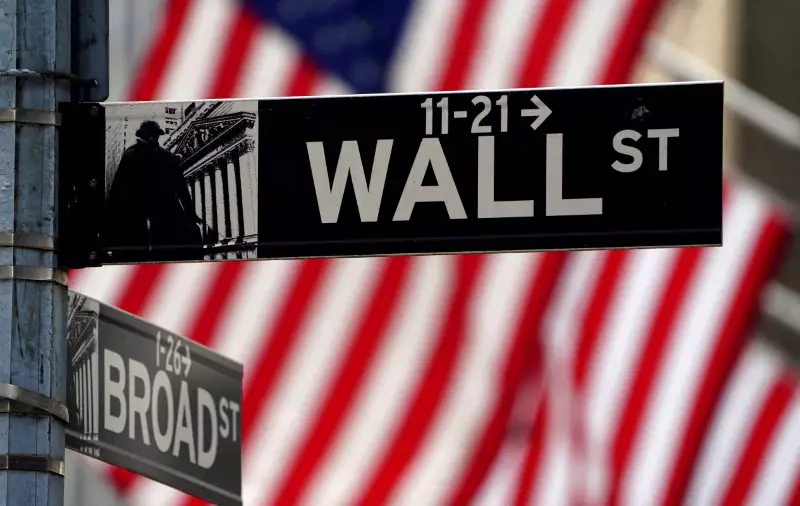In the wake of Donald Trump’s presidential victory, the U.S. stock market is experiencing unprecedented growth, capturing the attention of investors and analysts alike. The S&P 500 has not only reached record levels but has surpassed the 6,000 mark for the first time, signaling a burning optimism within the market. This surge can be partially attributed to expectations around forthcoming fiscal policies, particularly proposals for tax cuts and the deregulation of various sectors. These factors promise to enhance corporate profitability, thereby drawing significant interest toward equities.
Moreover, the Federal Reserve has played a crucial role in this financial backdrop. Following a much-anticipated rate cut of 25 basis points, investor sentiment has been buoyed. While the Fed’s ability to continue this downward trend in rates is under scrutiny, the dynamics surrounding inflation will be pivotal. Should inflation figures demonstrate a continued moderation, the market could sustain its momentum. Economic data will hold the spotlight, particularly the forthcoming consumer price index (CPI) report, which will reveal the direction of inflation.
Anticipating the release of the November 13 CPI report, market experts underscore the necessity for the data to validate the assertion that inflation is indeed on a downward trajectory. The consensus among economists posits that the CPI for October may indicate an annualized rate of 2.6%, reflecting a slight rise from September’s rates—a figure that was notably the smallest since 2021. While these values signal a manageable inflation climate when juxtaposed against the towering rates of 2022, any unexpected spike in inflation could recalibrate investor expectations regarding the Fed’s monetary policy.
Art Hogan, chief market strategist at B Riley Wealth, captures this sentiment poignantly, suggesting that a robust inflation report could complicate the Fed’s strategy. Current expectations suggest a decline in the Fed funds rate to approximately 3.7% by the close of 2025, an increase from earlier projections made in September. The interplay between inflation data and interest rates will be scrutinized, as any uptick may give the Fed pause in its endeavor to stimulate economic growth through rate cuts.
The bullish sentiment surrounding the market is also bolstered by solid corporate earnings, particularly amid the backdrop of technological advancements like artificial intelligence. As companies showcase strong financial results, the optimism is further amplified. However, lurking in the shadows are the implications of Trump’s economic agenda, which may drive inflation higher as the government considers higher tariffs and the potential modification of trade policies. These measures could have cascading effects on consumer prices and financial stability, reinforcing the notion that inflation remains an ever-present risk.
Market analysts caution that clarity regarding specific economic policies is crucial. Jim Baird, chief investment officer with Plante Moran Financial Advisors, highlights the uncertainty that still rests over tax and trade policy. The lack of specifics could leave investors in a state of suspense, weighing the positives of potential economic growth against the risks that inflation and adjustments in trade could pose.
The recent market upswing has particularly benefited smaller domestic companies, as evidenced by the Russell 2000’s remarkable 8% increase over the past week. These firms are perceived as well-positioned to thrive under Trump’s proposed tariffs. Additionally, the financial sector has experienced a notable revival, with bank stocks appreciating by about 7%. The expectation of deregulation is fueling optimism within this sector as investors anticipate heightened profitability.
Nevertheless, this immediate post-election frenzy reflects a larger process of adjustment to the evolving political environment. Investors are still adapting their strategies in light of Trump’s victory and the changing tides of the market. Analysts from UBS Global Wealth Management aptly note that while initial reactions have been pronounced, the market’s trajectory will ultimately depend on the specifics of Trump’s forthcoming policy decisions and how they intertwine with ongoing economic conditions.
The American stock market is currently in a fascinating state of flux, buoyed by optimism stemming from Trump’s victory, potential fiscal policies, and a supportive Federal Reserve. However, as inflation data looms and the political landscape evolves, investors must remain vigilant. The interplay between inflation, interest rates, and economic policies will hold significant implications for market stability. As investors navigate these waters, a posture of cautious optimism may be the most prudent path forward.

